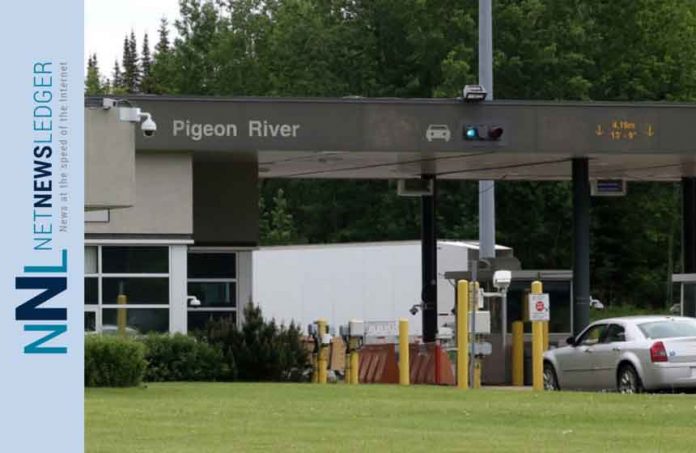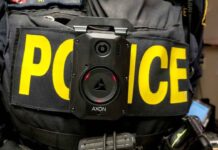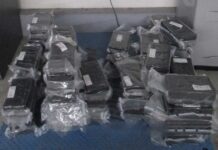Thunder Bay, Oct. 8, 2024 – As the Canadian Thanksgiving long weekend approaches, and many across Northwestern Ontario and especially Thunder Bay, make plans to head to Duluth (AKA Thunder Bay Deep South), the Canada Border Services Agency (CBSA) is reminding travellers that border crossings can be busier than usual.
The CBSA is offering practical tips to help ensure a smooth experience as you travel across the border during this holiday weekend.
“Every day, we work hard to protect Canadians, support the economy, and ensure the safe and efficient movement of people and goods across the border,” says the CBSA. In 2023, the agency welcomed over 86 million travellers while intercepting over 72,200 kilograms of prohibited substances, a 30% increase from the previous year.
Here are some essential tips from the CBSA to help make your Thanksgiving trip as smooth as possible.
1. Plan Your Timing and Route
Expect delays, especially during peak periods. “The Monday of holiday long weekends tends to be the busiest,” warns the CBSA. Travellers are advised to cross the border early in the morning to avoid long waits. Checking border wait times and considering alternative ports of entry can help reduce delays. The CBSA also suggests using GPS navigation apps like Google Maps or Waze to explore the fastest or shortest routes.
2. Have Your Documents Ready
“Having your travel documents handy will speed up processing times at the border,” reminds the CBSA. Whether you’re entering Canada by land or air, ensure your passport and any other required documentation are easily accessible.
3. Be Prepared to Declare
When returning to Canada, declare everything you have with you, including any purchases and goods in your vehicle. This includes food, plants, animal products, and medications. “If you’re not sure what to declare, it’s best to ask a CBSA officer,” says the agency. Failure to declare items can result in fines or goods being seized.
4. Poultry Restrictions and Other Food Items
Planning to bring back turkey or other poultry? “Make sure you review the current restrictions on poultry and bird products from the United States,” the CBSA advises. Any homemade foods or leftovers containing poultry are prohibited from being brought into Canada.
5. Travelling with Children or Pets?
If you’re travelling with children, especially if they are not your own or you share custody, the CBSA recommends carrying a consent letter from the child’s parent or guardian. “Officers are always on the lookout for missing children,” says the agency, and they may ask additional questions if documentation is missing.
For pet owners, ensure your pets meet Canada’s import requirements before travel. If you’re bringing a dog to the U.S., be aware that updated documentation requirements came into effect on August 1, 2024.
6. Special Considerations for Boaters and Watercraft Owners
For those entering Canada by boat, reporting to the CBSA without delay is essential. “If you are towing or transporting any watercraft or water-related equipment, it must be clean, dry, and free of invasive species,” warns the CBSA.
7. Know Your Limits and Restrictions
If you’ve been shopping while abroad, make sure you’re aware of your personal exemption limits for goods, including alcohol and tobacco. The CBSA provides a duty and taxes estimator to help calculate the amount you may owe.
Restricted items such as firearms, fireworks, and even firewood are subject to special rules. “Leave firearms at home if possible,” says the CBSA, “and ensure fireworks meet Canadian regulations before bringing them into the country.” Similarly, imported firewood can carry invasive insects and is not allowed.
8. Cannabis and Other Prohibited Items
While cannabis is legal in Canada, it remains illegal to bring it across the border, regardless of whether it is for recreational or medicinal use. The CBSA is clear: “Don’t bring it in. Don’t take it out.”
Other restricted items include narcotics, such as cocaine and heroin, and weapons like switchblades and pepper spray. “If found in possession of these illegal items, you risk arrest and prosecution,” the CBSA cautions.
Final Tips for a Smooth Border Crossing
The best advice for saving time at the border? Be honest with the CBSA officers. “If you’re unsure about what to declare, just ask,” they advise. Open communication with border officers can prevent delays and ensure a smooth process.
For more information on border crossing procedures, visit the CBSA website or call 1-800-461-9999.






 Fort Frances Homicide Investigation: Murder Charge Laid Following Discovery of Missing Man
Fort Frances Homicide Investigation: Murder Charge Laid Following Discovery of Missing Man
